Fatima Sesay, 24, producer and social media manager
From Sierra Leone, based in New York City, U.S.
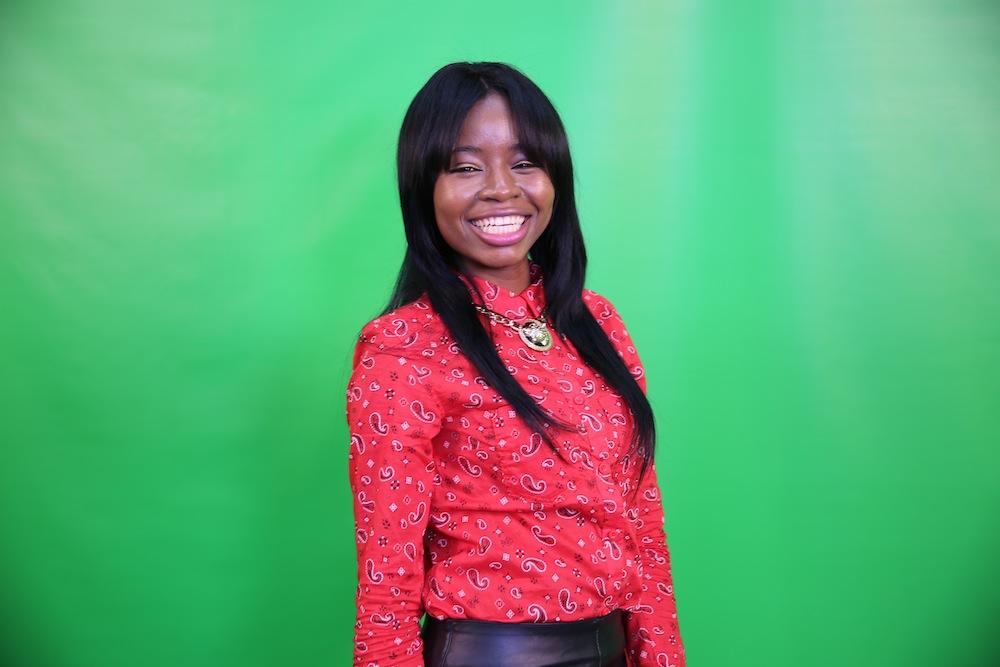
African fashion has the ability to explore different shapes, patterns and colors to create a unique look without any boundaries; it is a freedom of expression in which one transcends routine fashion trends.
Though the African fashion industry exists, there is a sense of exposure that designers are not getting; especially those back home in the continent who lack the fabrics and funds to be able to showcase their designs. In terms of those abroad, mainstream media is starting to recognize then, like Ghanaian designer Christie Brown who created the outfits worn by Beyoncé‘s dancers for “The Mrs. Carter Show” World Tour.
I am inspired by Farai Simoyi, Azy Banks, Dramatik Fanatik, 54 Kingdoms, and now Christie Brown. I’m wearing a red button up shirt and imitation leather pants from H&M, with a pair of red Converse’s. I prefer American brands with an African twists to it. I like to think of myself as a fashion-forward individual depending on my mood. In fact, I aspire to be a future designer, so I take into account details that the ‘normal eye’ would not notice; sometimes even unintentionally.
Carolyn Seaman, 32, fashion enthusiast
Based in Abuja, Nigeria
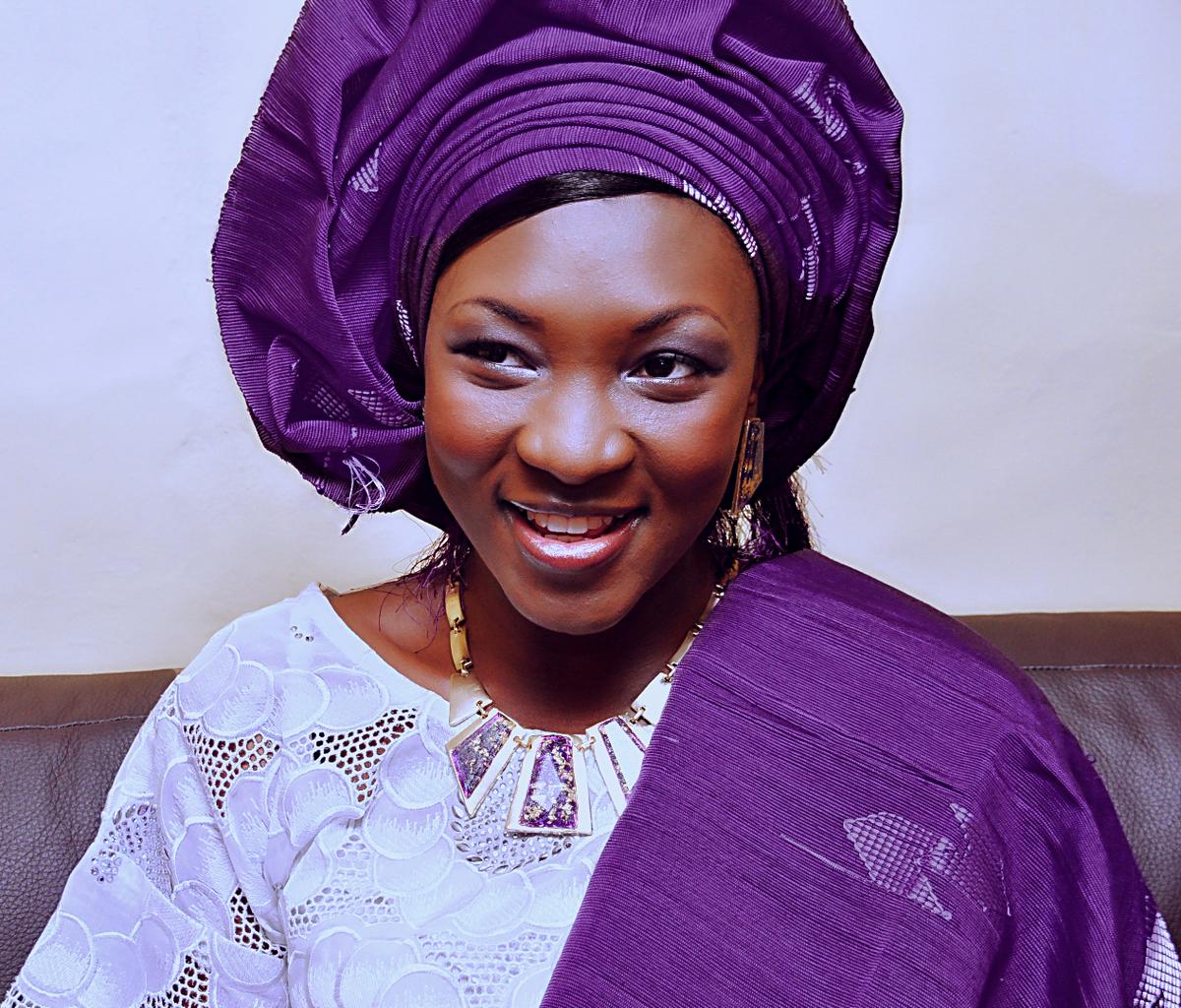
Fashion is very important to me because it is the reflection of my style, my behaviour and my way of life. Every aspect of my clothing style; my outfit, my hair and make-up all combine to represent my personality - the way I think, my goals and my capacity to also express my creativity in various styles and designs.
My outfits are predominantly classy, stylish African prints and feminine ready-to-wear dresses with a rich variety of colours like lots of purple which I particularly love.
I am inspired by South Africa’s high end fashion designer, Abigail Keats and Nigeria’s haute couture fashion designer, Deola Sagoe. I am also inspired by Yves Saint Laurent’s creative redesigning of clothes considered to be masculine into beautiful feminine wardrobe for women, and by Dior’s dramatic couture ball gowns, chic prêt-a-porter and luxurious accessories.
Freeda Mulenga, 28, co-founder of Kuwala fashion brand
From Malawi, based in Calgary, Canada
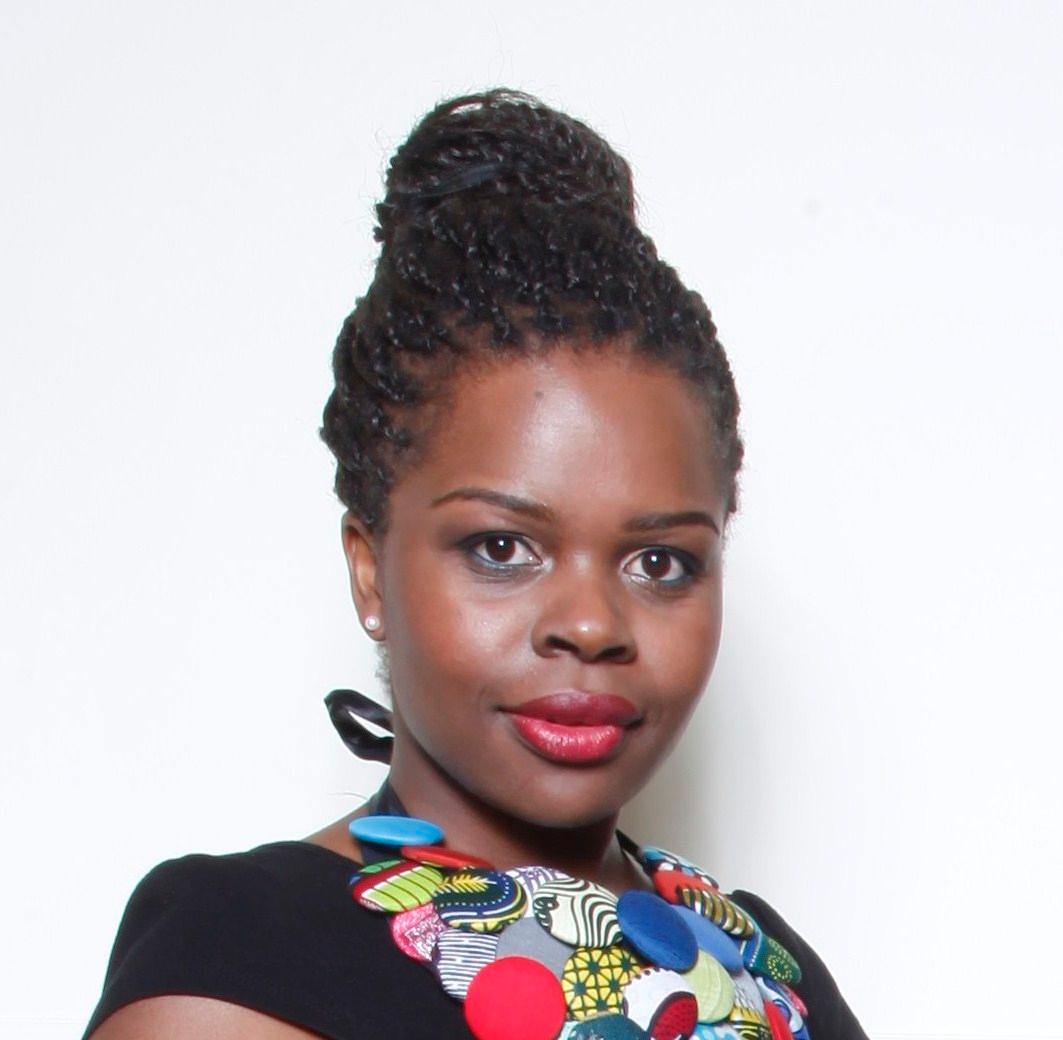
I am a complete classic. I live by the idea that less is more and gravitate toward form fitting basics like neutral button-down shirts, jeans, and the perfect black dress. I add splashes of color with accessories.
Veronica Nnensa, 25, co-founder of Kuwala fashion brand
From Malawi, based in Toronto, Canada
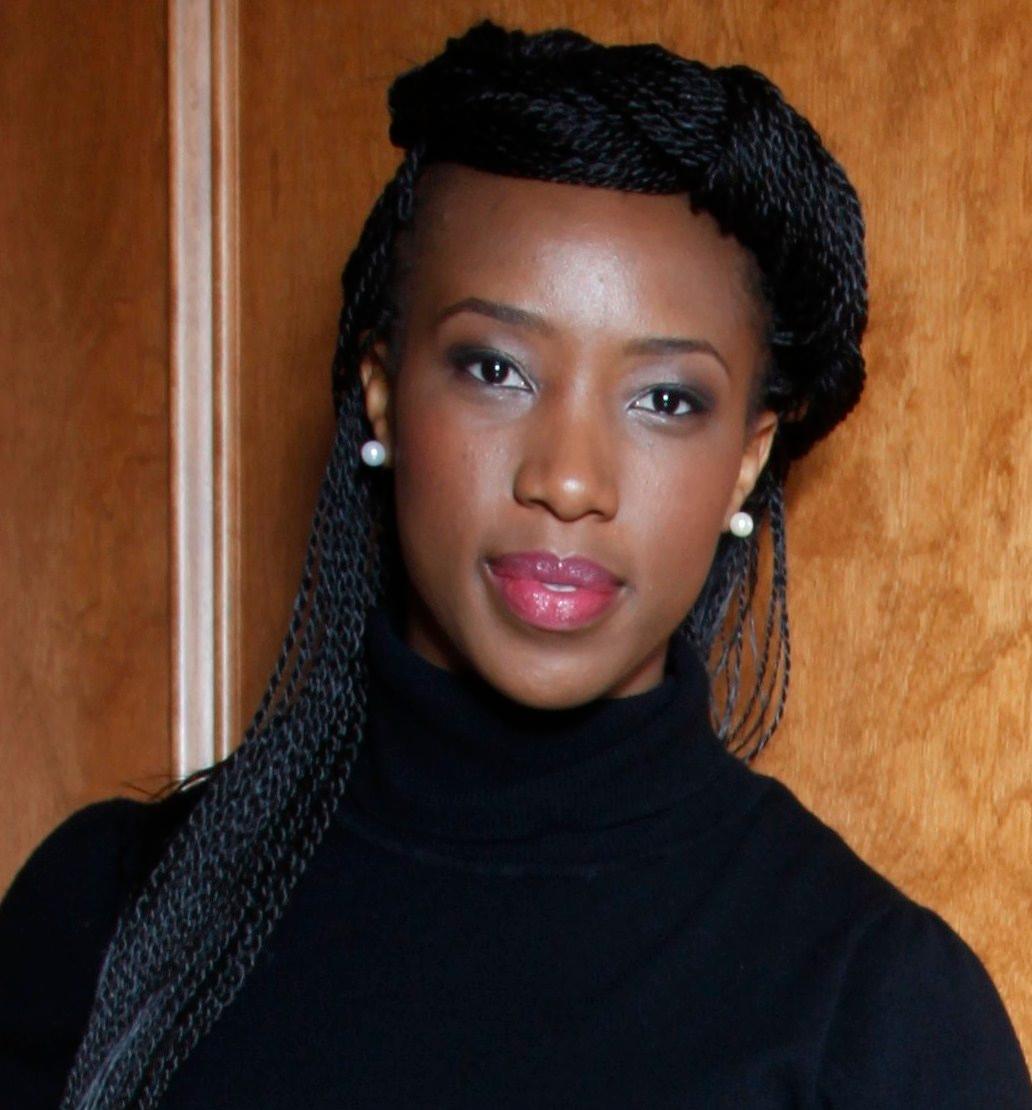
I like mixing and matching different pieces. I usually have one accent piece, which could be a colorful head-wrap or unique jewelry. I like having one piece that gets people’s attention and asking where I got it from.
Freeda & Veronica: Fashion is a way to express your individual style. It can say a lot about who you are, where you’re from and what you’re aspiring to. We live in a connected world and can’t help but influence one another. This is proven by the trend of everyday African fashion which fuses African fabrics with Western styles. We are both drawn to designers who are creative, pay attention to detail and understand fit. We are especially proud of Africa’s design.
Selwyn J. Boston, 33, bespoke couturier
From Sierra Leone, based in London, United Kingdom
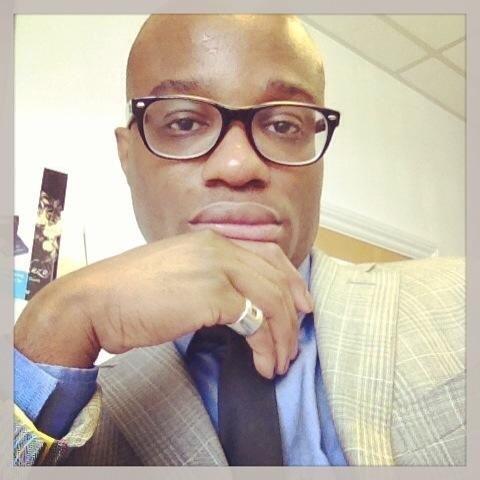
Fashion silhouettes evolve too quickly, and with mass production styles fade in and out in a matter of months. For me, fashion must come with a style that is sustainable for the individual. As an individual, maintaining your personal style acts as your wardrobe signature.
Culture has a lot to do with African fashion trends but I‘d say the early adoptive consumer defines the fashion trends. Most consumers see a style and want it replicated in an African print. Even though style influences come from ’Western' fashion markets, the use of African prints remains prominent with most African designers and consumers.
My style is varied but mainly tailored or smart casual. I’m currently wearing a grey check jacket by Ozwald Boateng, cornflower blue fitted shirt by Selwyn J. Boston, and a black silk tie by Folkespeare. I tend to wear Lee Jeans & Levi’s jeans for smart casual but for a sharp, tailored look, I'd wear my label because of the silhouette, because of the cut, and because it is my style. Fit is very important to me. It adds to the essence of my creativity.
Kouassi Norbert Akou, 33, fashion designer
From Ivory Coast, based in New York, U.S.
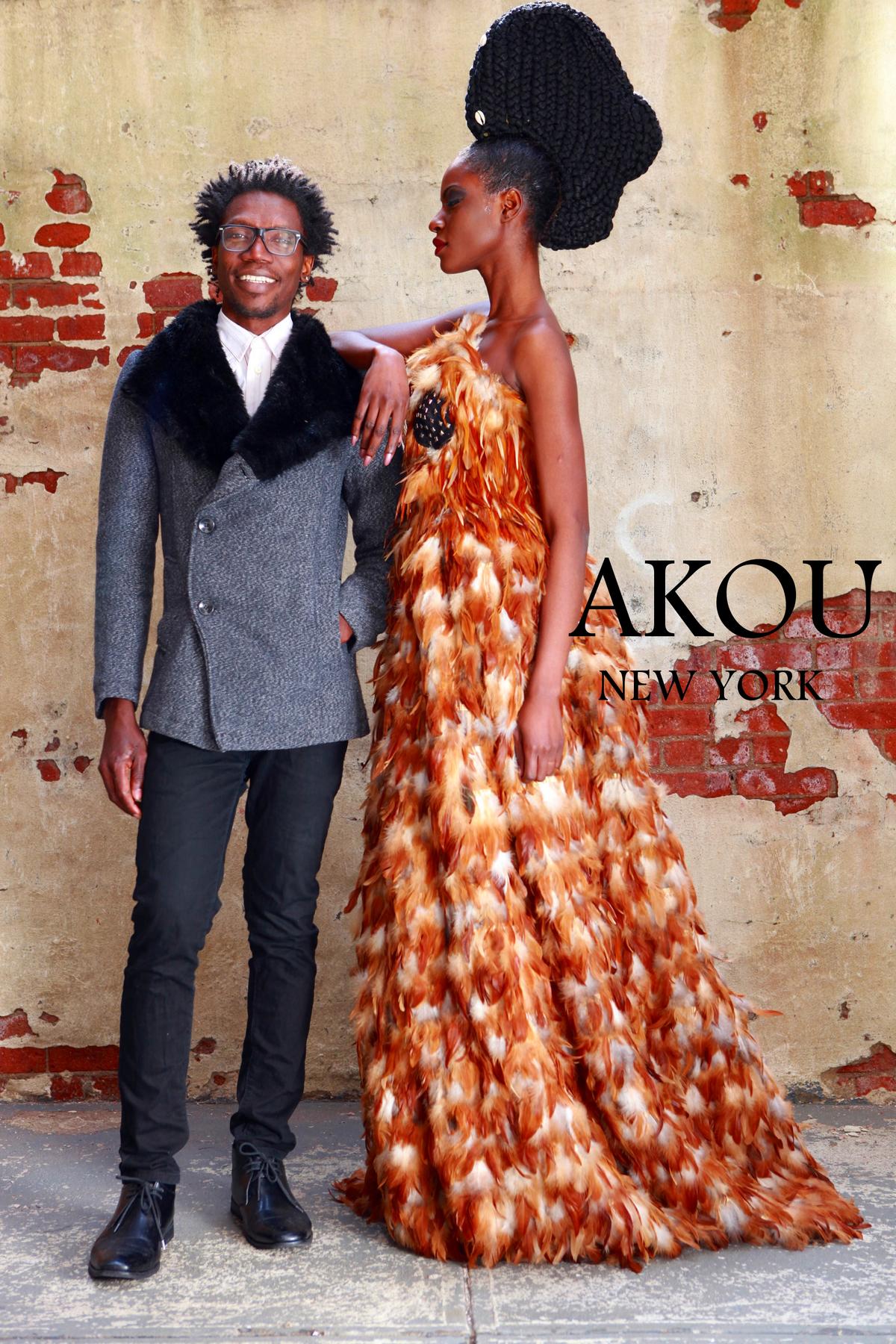
It is through clothing that people express their character; it allows them to identify with the groups (ethnic, racial, continental, etc.) they like, so this is a big part of human life for me. It’s important for people to feel comfortable in their skin.
I like good-fitting clothes that hug the body. It depends on the occasion, but I like classic styles, with lots of colors. I don’t have a preference for African brands nor for European brands. I have a preference for quality brands. Just because Africa is poor, and fashion is often thought of as a rich pursuit, it blocks African designer from emerging on the international stage. Already if you have black models it’s much harder to sell compared to white models. Go to the websites of designers and see for yourself, it’s true.
Adebayo Yewande, 23, fashion designer
Based in Lagos, Nigeria
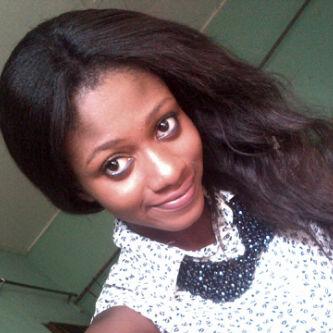
Fashion is a way I express myself, not with my mouth but with what I choose to wear, how I choose to wear it and how I decide to combine various accessories along with what I wear. When I step into a place, I don’t need to announce my arrival but that unique dress sense does the talking. Fashion defines my attitude, who I am, what I represent, in conclusion: it is my identity.
I love everything colorful not forgetting the fact that not all colorful things go for all occasions. I select my colors just like a chameleon, the color I choose must blend with the occasion: skinny jeans and heels for casual occasions, maxi-gowns, free chiffon tops, and jumpsuits, and of course ankara, kente, adire and kampala (African textiles). The right combination of African materials with non-African ones surely adds a rich flavor to the outfit. Whenever I go to work, I prefer my T.M Lewin shirts to any other. But outside work, I prefer the African brands. It makes you feel unique and truly African. I love African fashion!!
Wanjiku Nyoike-Mugo, 27, Managing Director of The Designers’ Studio (TDS)
Based in Nairobi, Kenya
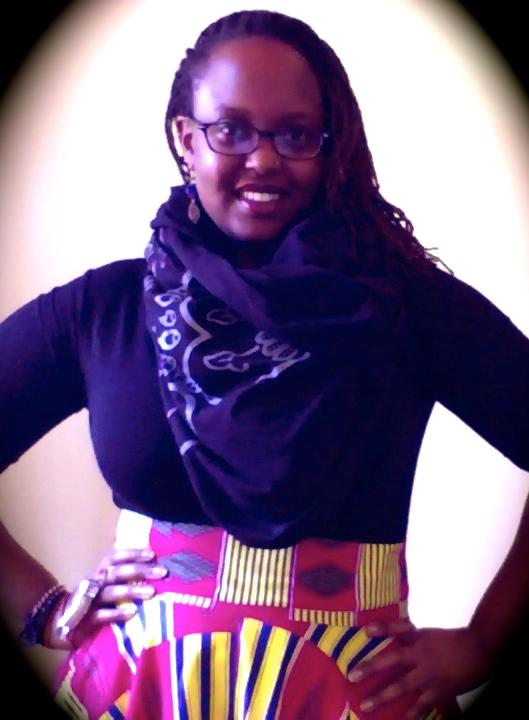
Fashion is not just about clothes and fashion editorials in magazines, it’s a reflection of a society, a means to provide jobs, empowerment, artistic expression, cultural and emotional association, economic sustainability and social change. Believing and investing in fashion, through TDS, is one way to bring about this change in Kenya.
There are many designers who inspire me, particularly those that think outside the box. To name a few, Nkwo Onwuka, a U.K.-based designer from Nigeria; Katungulu Mwendwa, Aryam Designs by Loulou Quinet, Kooroo, Adele Dejak, Zeeban Designs (leather bags) and Enzi footwear, all from Kenya.
I am wearing a Peperuka infinity scarf, Pink kente Super Flared Skirt by House of Hadassah and earrings from Zambarau Accessories (Kenyan designers).
Mario Epanya, 38, fashion and beauty photographer
From Cameroon, Based in Paris, France
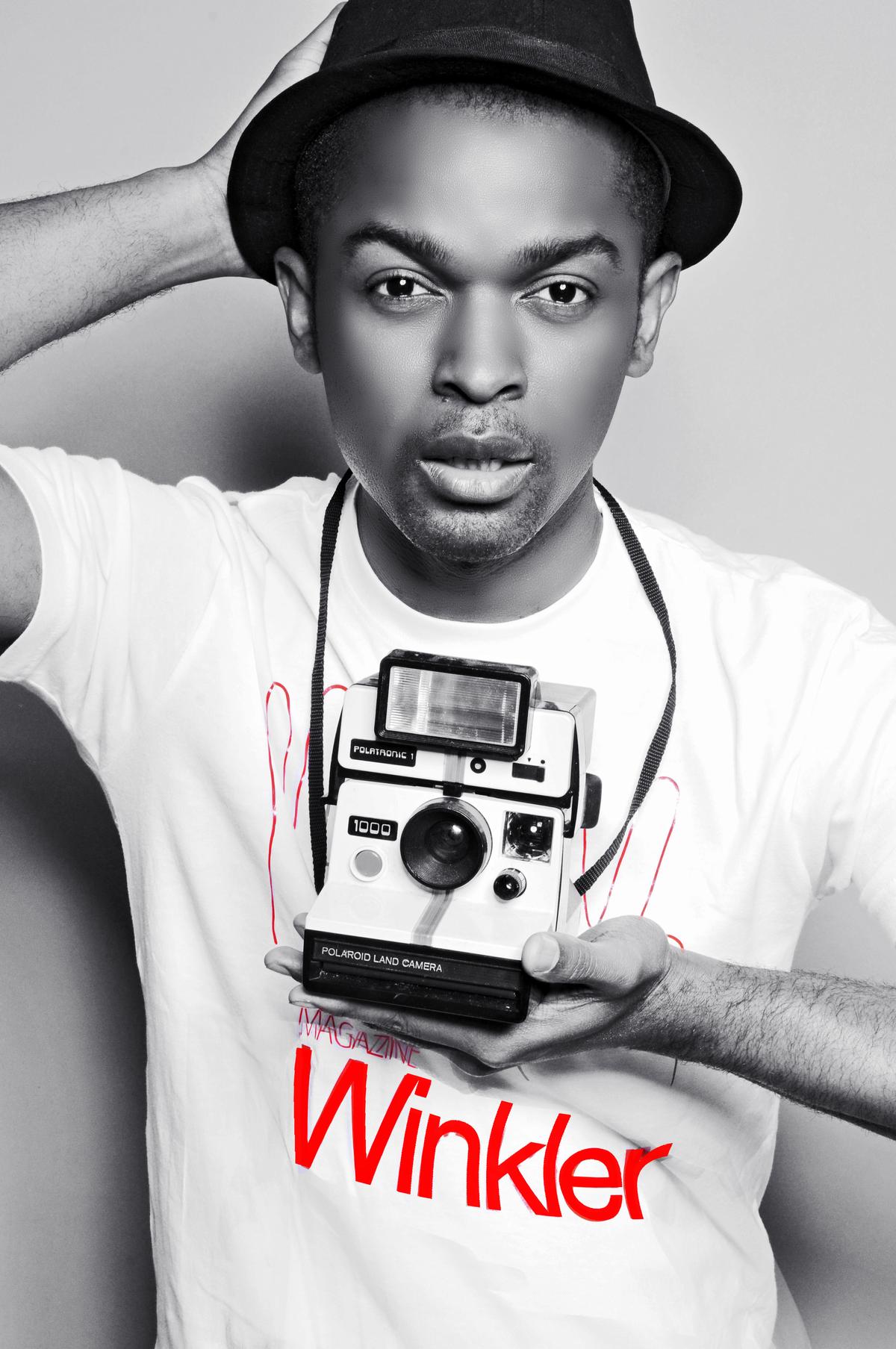
Fashion for me is an expression of culture from different group of people around the world. Fashion tells a story, a trend through the years. African fashion is more defined nowadays by the Prints and some ethnic codes in the fashion industry and I think African fashion industry is blooming. But they need to work about having a Council of African Fashion Designers who can organize the calendar and the market with cultural administrations in African countries, in order to be able to compete with the rest of the world.
I am inspired by Stella Jean—a nice combination of modernity and ethnic style. My style is simple: jeans, tee shirts and sneakers; sometimes I like African prints jackets. Colors: blue and hazel. I like diversity: as a world citizen I like to mix African and European styles because that is how I am and feel conformable in both.
Esie Mensah, 29, dancer/choreographer
From Ghana/Togo, based in Toronto, Canada
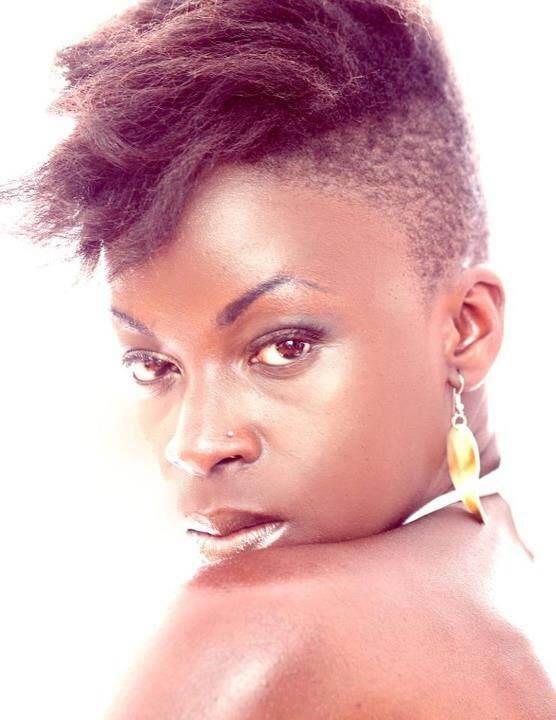
Fashion is a freedom of expression. I see it as a way to show my individuality on a daily basis. Everything from jewelry to printed tights all complement my personality. African prints are found in designer houses all over the world. Now more than ever is being Africa in fashion so it’s a beautiful thing to walk around showing your heritage and pride for your continent and country.
My style consists if African prints (head wraps, skirts) and bold colors. I would say it is “urban chic meets Africa”.
A designer that inspires me is Ozwald Boateng. His story is one that is memorable and he set a trend within fashion amongst men and I admire that. Choosing to use bold colors on the runway allows someone to feel confident in himself and his appearance. A definite way to make you feel like a million dollars.
Frank Acheampong, 20, student and model
Based in Accra, Ghana
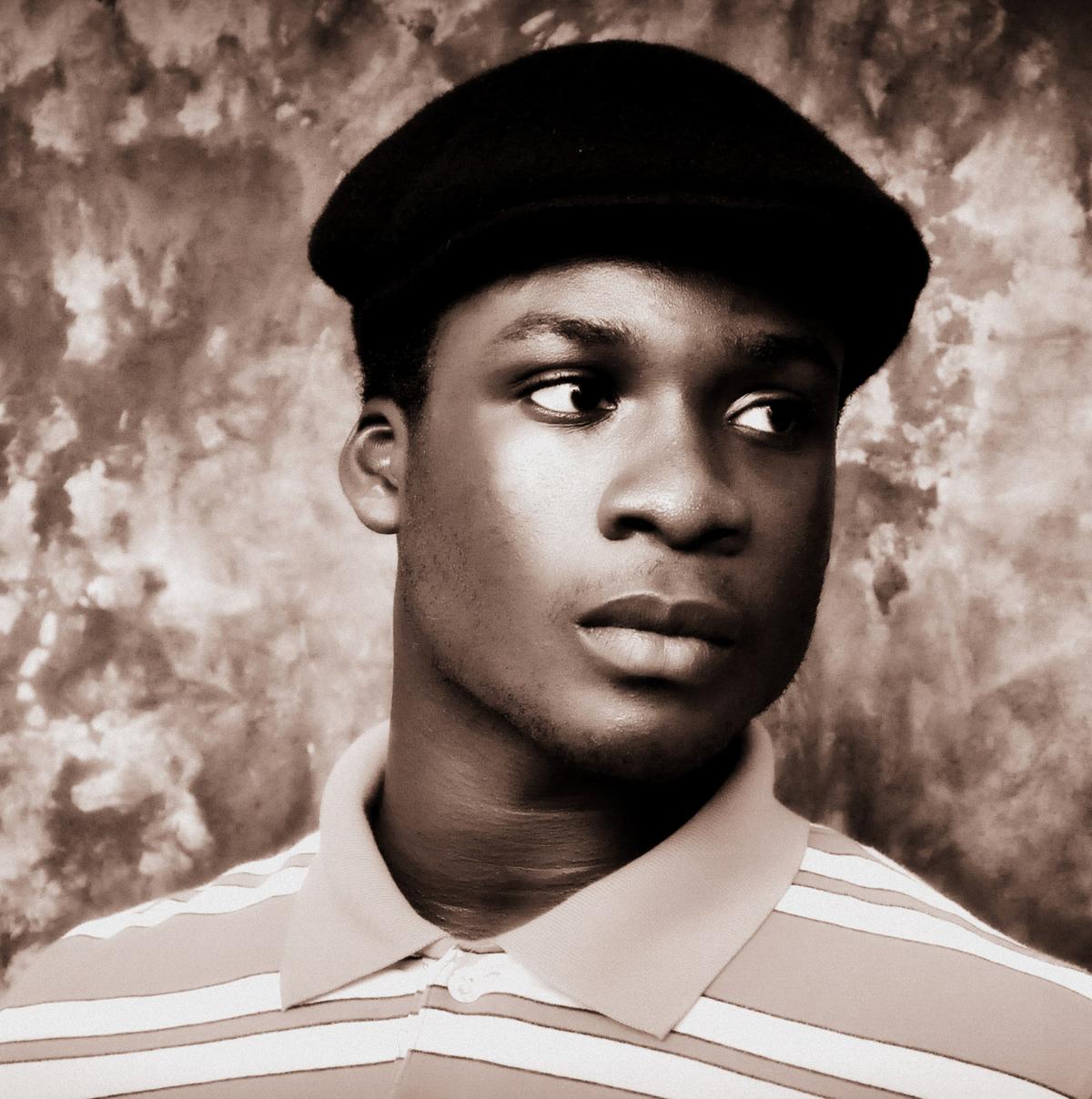
I believe fashion is our sixth sense. Without saying anything, the first impression anyone has about you is how you look. It actually portrays who we really are deep down.
I'd prefer going out in a fitting attire rather than a loose one. I like it when someone can figure out how exactly my body would look with no clothes on. That way, I get noticed by designers at castings and fashion shows I’m not featured on. On a normal day, I like to look simple and classy with some bright color, usually a light shade of blue because it looks good on me. And yes, I like to do a little make up every now and then, but not to look cheesy. When it comes to brands, I would buy good quality, regardless African or not. But I like when foreign designs are made with African fabrics.
Jovita Ross, 33, designer/founder of Vita Talie, Liberian
Based in New York City, U.S.
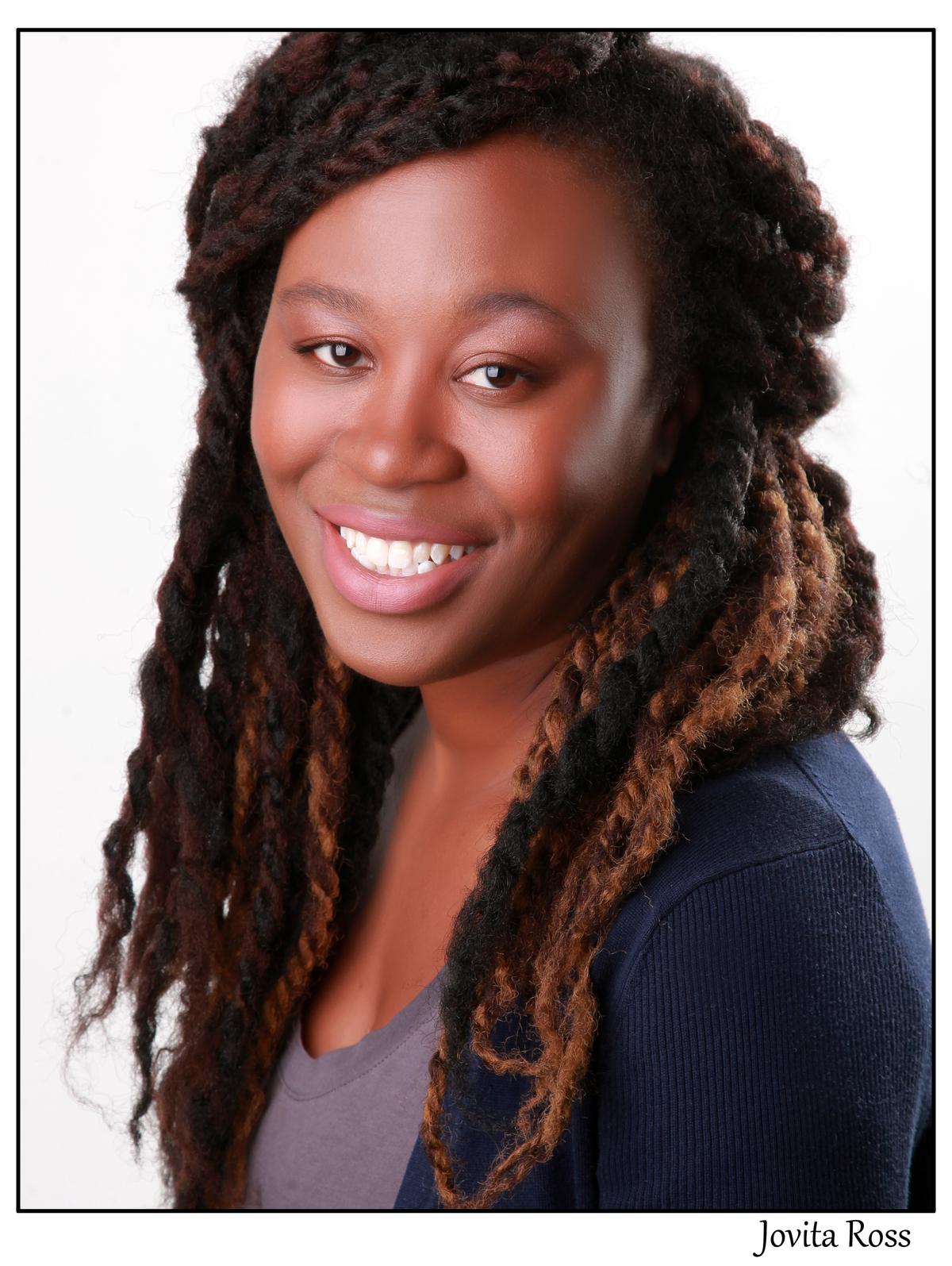
Fashion is a walking art that gives people an idea of who you are and what you are all about. Fashion is also a visual illustration of past and present generations, history and cultures.
Jewel by Lisa is such an inspiration and has allowed new designers, like myself to become more creative in developing unique lines and brands. She has found a great niche in the industry because of her ingenious blends of prints, textiles and modern silhouettes that are so inviting that any woman can wear her designs.
I love mixing and matching designers, prints and fabrics. I usually wear monochromatic colors but go crazy when it comes to accessories. I like utilizing ankara fabric in my jewelry and handbags. Bold necklaces, big earrings and headbands always take my look to another level. Right now designers that are using African inspired elements in their collections are catching my attention. I am so excited to see more from the industry and I hope more exposure will encourage retailers all over the globe to start selling these amazing brands to the masses.
Julz, 34, fashion designer, Ghanaian
Based in Toronto, Canada
To me, fashion is all about freedom of expression. I am most inspired by the designer Ozwald Boateng. When you put on one of his suits you feel like you can conquer the world. Ozwald is gifted in the art of tailoring. In my photo I am wearing a custom-made shirt. My team and I created this design. It is part of an ongoing project called the African Invasion Movement. Our goal is to provide African artists with a global platform to showcase their talents.
It is fun to mix things up, but I will never pass up any opportunity to support artists from my homeland. I wear African brands with pride and I always will. The amount of talent in Africa is immeasurable. I feel like it is my duty to give these artists a voice in the global community. Whether they be fashion designers, musicians, or authors; it is my firm belief that they all deserve a chance to shine.
Khetiwe Khumalo, 28, fashion and lifestyle blogger, Zimbabwean
Based in New York City, U.S.
Fashion is a language that helps me express my view on culture, beauty, confidence, and creativity. It’s very important to me because it is one of the ways that I communicate my individuality.
Roberto Cavalli’s uninhibited use of colors and patterns resonates with my appreciation for innovative thought and design. I like making everyday fashion look like a million bucks! I prefer creativity and inspiration. I prefer people who are passionate about their craft, regardless of their nationality or race. I do believe the fashion industry at large has a long way to go in its acknowledgement and promotion of non-European brands, especially African brands. There are a lot of great brands out there like Mimi Plange and Evelyn Lambert, but they have yet to be given the mainstream credit they are worthy of.
Nathalie Daouda, 39, founder of ND Consultant
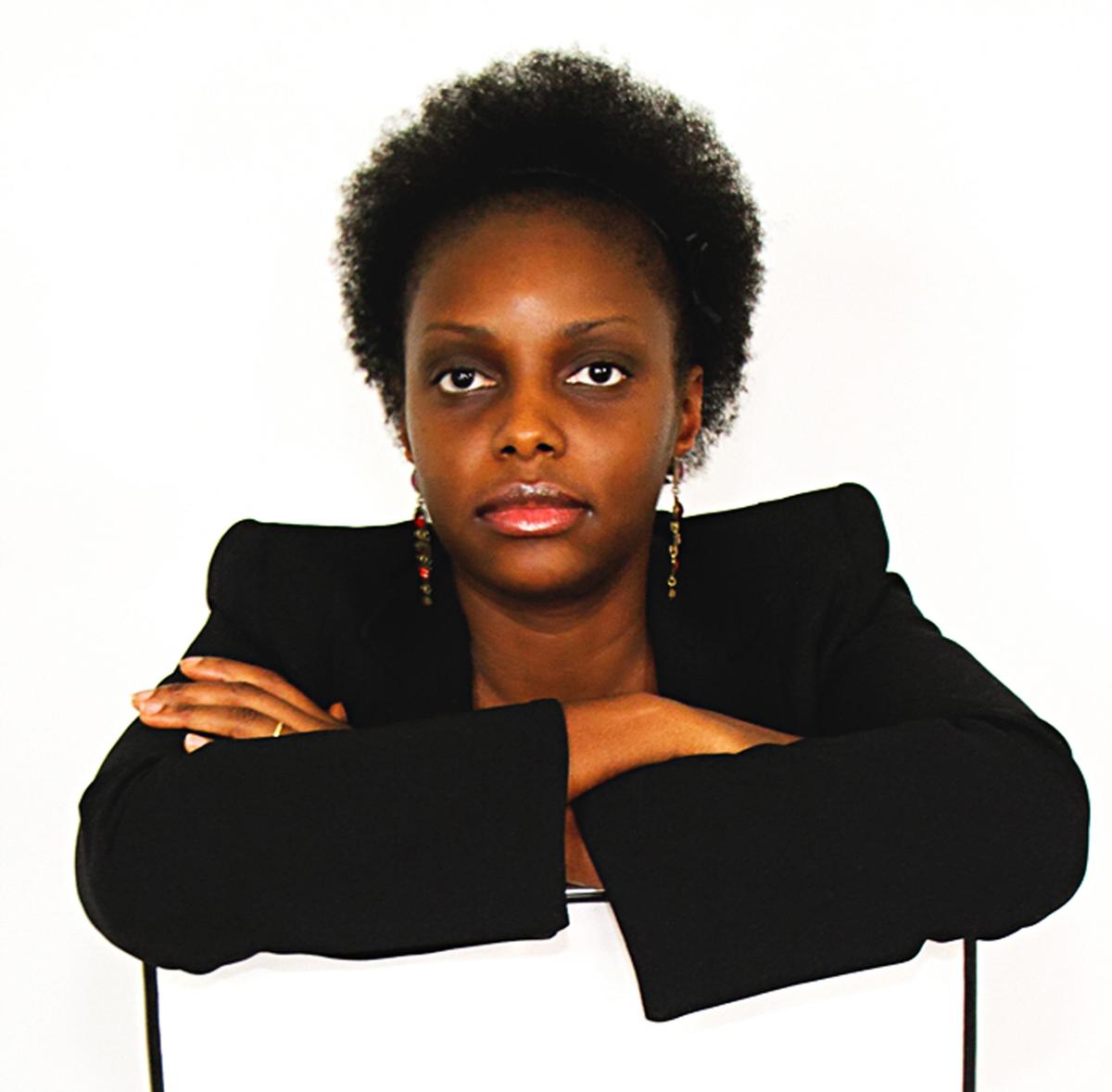
Based in Douala, Cameroon
I started paying attention to African fashion when I realized the industry is not structured in Cameroon.
Over 90 percent of fashion articles are imported from China and Europe, while talented local designers run away from the country to run their businesses in Europe. I believe African-made fashion outfits are essential for the development of African countries. This is why I organized the Fashion Addict’s Tradeshow.
Some of the designers who inspire me: Akinka (Burundi), Alphadi (Niger), Karole Te (Cameroon), Koloba Paris (Cameroon), Martial Tapolo (Cameroon), Nakuin (Cameroon), Patheo (Côte d’Ivoire), Vuvu.706 (Cameroon), Weni (Benin), Yaya’s (Cameroon).
I focus on “Ethno Chic” designers. But I am more interested in clothes, rather than brands. I just want clothes that make me look nice, that are affordable and good quality. But as far as I am aware of in Cameroon, unfortunately, African brands are not sufficiently accessible.
Sophia Chitemere, 25, founder and editor in chief of Infinity Magazine, Zimbabwean

Based in Johannesburg, South Africa
Fashion symbolises who we are and where we come from. It shows what sort of personality I have as an individual. If we did not have fashion, there would be an identity crisis and fashion is probably the only way that can express ourselves. I love the new trends, colours and dressing up is what I love the most.
My all-time favourite has to be David Tlale. Yes, I do prefer African brands. Firstly, I appreciate the different African fashion style or trends that are used to portray our different cultures. African brands are full of so much colour, prints, beads, etc., that show off who we really are. And these brands have taken over the fashion industry worldwide. They have come to the point where celebrities now wear African brands all the time. I must say they have truly worked hard to go beyond the boarders of Africa with their artistic designs.
Saheed O. Adeleye, 32, Professional Business Developer, Nigerian
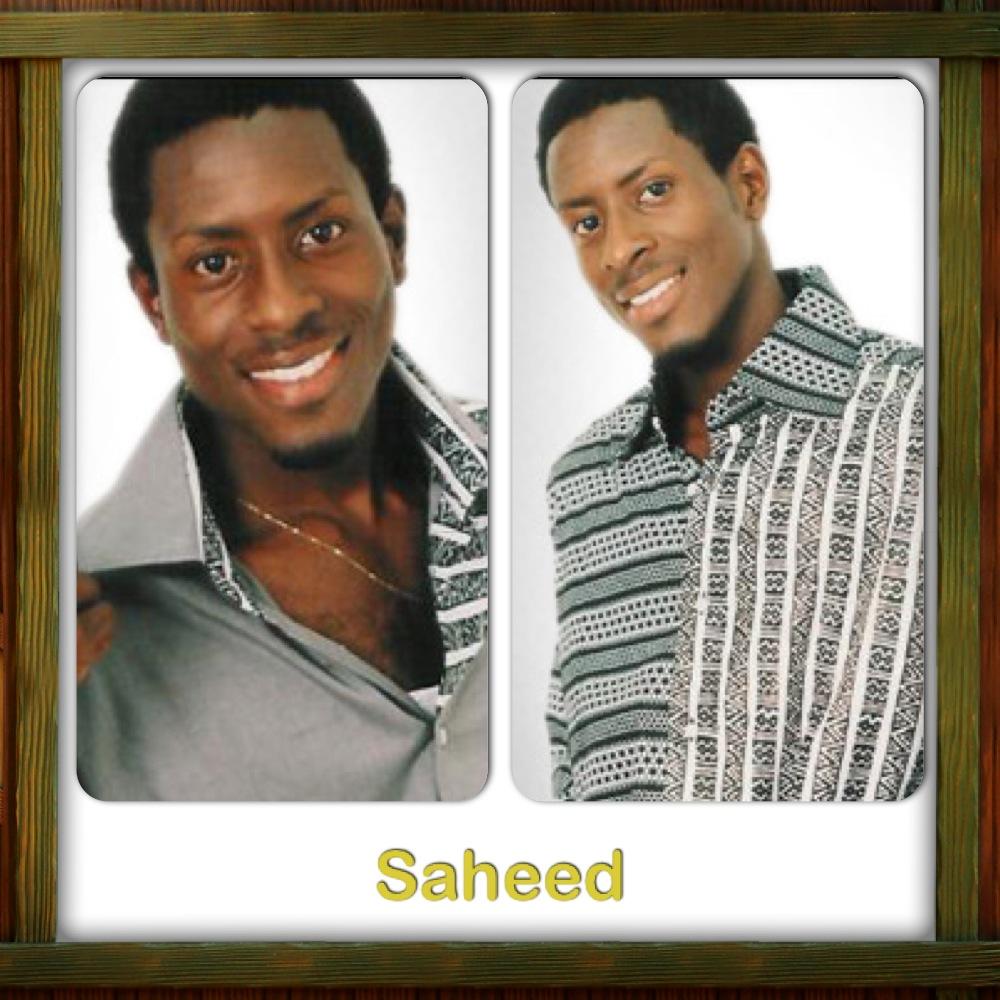
Based in Raleigh-Durham, U.S.
Fashion is very important to me because it’s a form of expression of self and reflection of the soul.
Various designers embodies my sense of fashion both within the African continent and across the world. The industry is more creative and skillful compared to years back, various indigenous African materials are becoming readily used with great representation by African designers based on the continent and overseas. A few upcoming interests includes Fenix Couture, Ernest Mahomane, Shakara Couture, Buki Akib, amongst others.
My outfit is a casual button up shirt, with an embodied patterned design. The style is hip and classy with a mixed color of grey, white and black. I am actually indifferent about brands. My location and weather determines my choice of wear. I do however like to express my African root in every way possible when outside the continent. Be it a full attire, accessory or mixed dressing, the beauty of the continent is seen on me.
Esther Adetula-Obembe, 22, blogger/writer, Nigerian
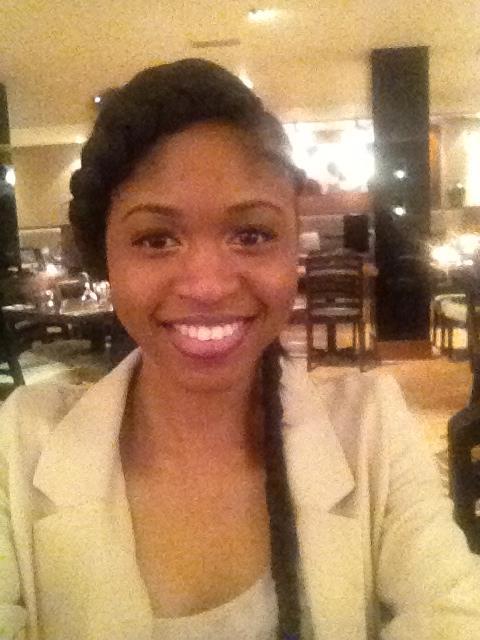
Based in London, United Kingdom
Fashion enables me to express myself in creative and diverse ways without having to alter much of my look. It also allows me to wear clothes from different eras and cultures.
My style is often sophisticated, simple and afro centric. The colors range from monochrome to vibrant and warm. I love the colors, fabrics and textures of traditional African clothing, mainly Nigerian (Yoruba) cloth but because I like to experiment often with fashion and style from high street stores I can’t say that I prefer African brands nor do I know many brands.
What I enjoy about African brands is that they are easily accessible to anyone who wants them. One can also get a tailor to sew an outfit they have designed or seen in print or on their favorite celebrity.
Yves Saint Laurent has always inspired me, be it through jewelry, shoes, women’s suits and their make-up range.
Sarah Teibo, 35, owner of Safojo (makers of umbrellas with African inspired designs), Nigerian
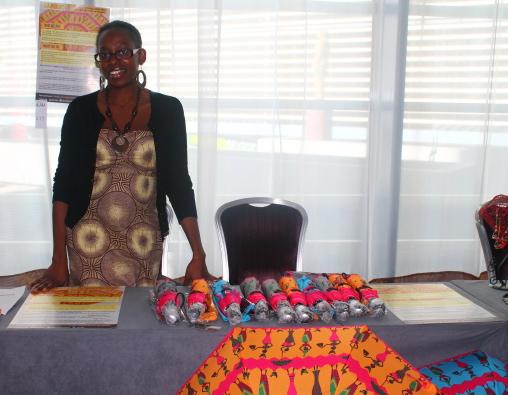
Based in London, United Kingdom
Fashion helps me express my personality and also boosts my confidence especially when I’m wearing an outfit I feel comfortable in. When I wear unique ensembles, I stand out and demonstrate my individuality. Apart from outfits I buy on the high street, I actually design a lot of my African outfits and have them sewn by professionals.
In this photo, I’m wearing a pencil dress I designed, made from ankara, a West African fabric. The style is form-fitting and the colours are warm. I chose this outfit to wear to an exhibition I attended to showcase my African themed umbrellas, because it has an inviting feel to it. When I’m not at work, I prefer African styles as I have a wider range of versatile patterns and designs to choose from and with which I can express myself. There is no limit to what one can do with African print.
Petrina Kamara, 42, owner of Petiz Fashion Accessories, Sierra Leonean
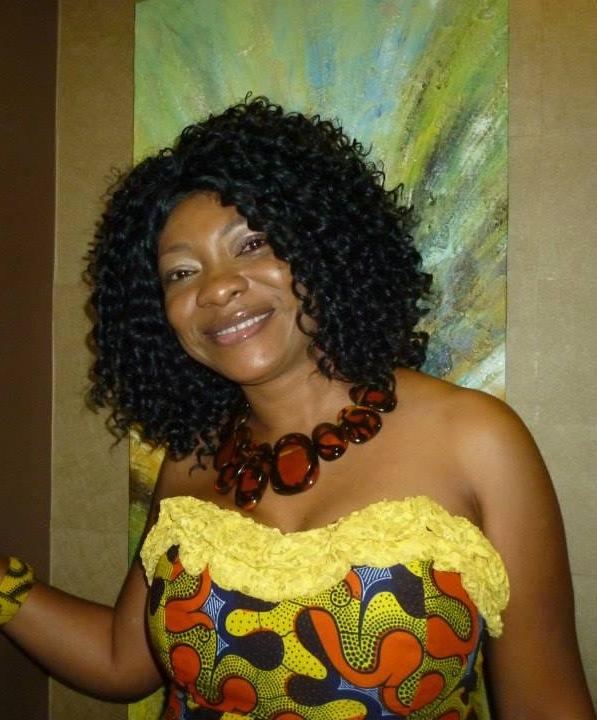
Based in London, United Kingdom
Fashion for me is one’s unique taste in bringing items of clothing/accessories together In order to present a look that enhances one’s confidence. I have had a unique taste in fashion ever since I was a little girl. As a child, I would customize the simplest fashion items, just to look different from everyone else.
African designs are all about colors, elaboration and accentuating curves. I always advise my customers to only accessorize with African print products if they are going to wear a plain outfit, or combine plain accessories with a very colorful African wax-print outfit.
I don’t have a particular choice of brand. It defeats the purpose of my work. I love combining brands and most importantly, I love the fusion of colors. African Fashion is evolving and people of various cultures and ages are getting drawn to the uniqueness of our fabric colors, textures and designs. The best is yet to come.
Nyadak Deng, 37, model, South Sudanese
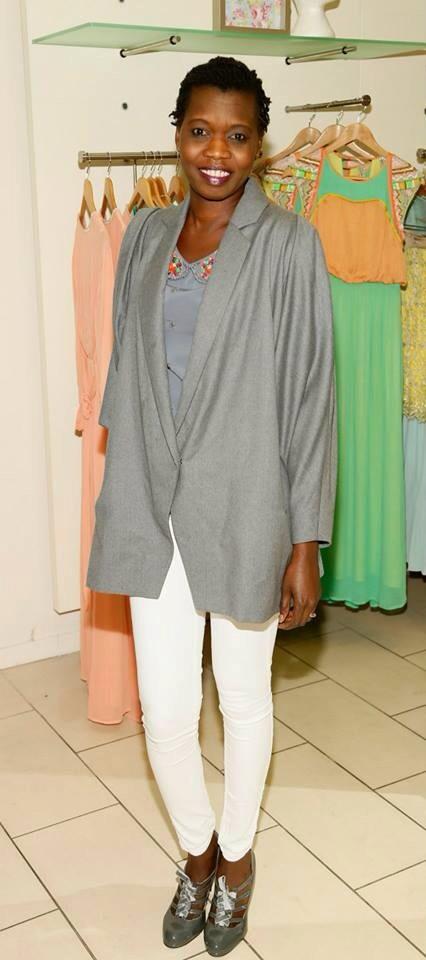
Based in Dublin, Ireland
Fashion is my passion I just enjoy the art form. I feel my clothes and fashion play big part of me as person, they allow me to express myself.
I am inspired by Elie Saab, Naeem Khan, Giambatista Valli. And of course I would not forget the beautiful African designer Aisha Obuobi. She combines the modern into traditional African style. I find this very elegant and sophisticated. I usually buy U.K. brands because when I shop I like to walk in to a store and try on the clothes and take what I want, but I can’t do this with African brands because we haven’t got them here in Ireland. Of course, I would love to buy some of the African designer’s pieces; I really admire the work of Korto Momolu, Lanre Da Silva or the creative Mataano of Somalia and Tiffany Amber.
Junda Morris-Kennedy, publicist, Liberian
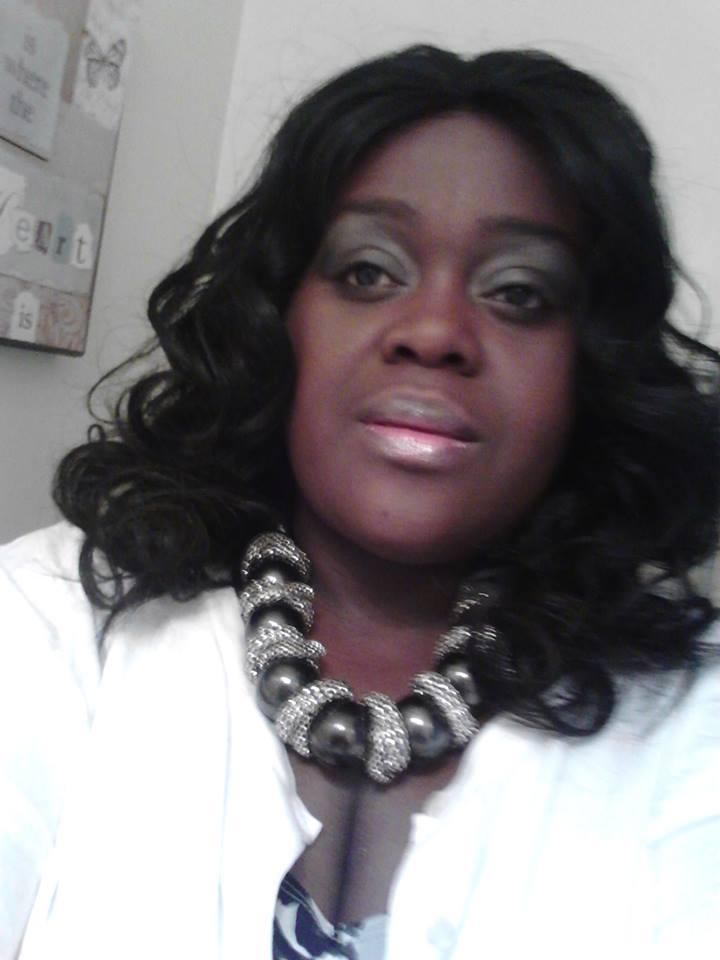
Based in Beavercreek, Ohio, U.S.
My fashion style is made up of trends from my Liberian traditions, cultures and international exposure that I have gained.
I would describe it as quite girly, but with an edge. I don’t like having items of clothing that everybody else has. My outfit trendy and very chic. With trend of ankara, I like to infuse it in my outfit, whether it is a purse, shoe or a head tie. My colors are very vibrant and bright, I light to stand out when I enter a room. I do prefer African brands because these designers go through a lot just to get noticed and it is our duty to support our own people before we expect the world to do so.
I am inspired by Deola Sagoe from Nigeria and Tekay Designs from Liberia—two strong and powerful African women.
Naseema Moukthar Hanga, 28, student
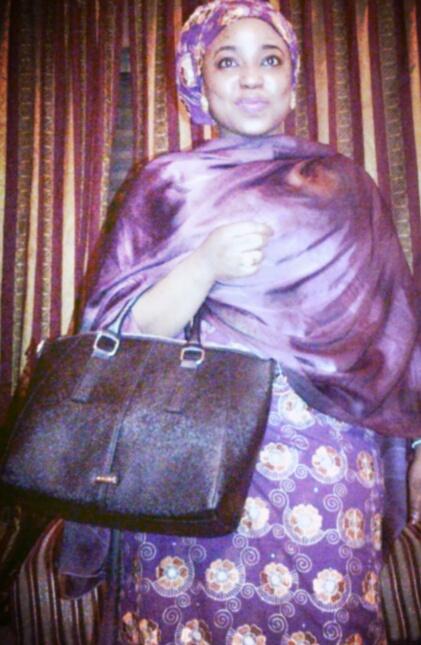
Based in Kano, Nigeria
Without fashion, we would all have the same look. Fashion helps develop personalities and creates a sense of acceptance. The designers that inspire me are Zuhair Murad and Mai Atafo(local designer). My outfit style is a wrapper, top and scarf, made of African prints. My favourite colors are orange and yellow. I prefer African brands because I want to encourage our local designers.
Carol Muia, 25, self-employed
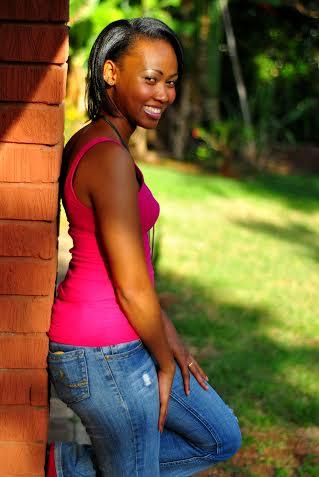
Based in Nairobi, Kenya
Fashion is important to everyone. It is how people ‘unfortunately’ judge someone. As a woman, I believe beauty is in the decency and meticulous putting together a look for your body.
My outfit is a hot pink vest top, blue jeans and fuchsia and light brown pointed loafers and a gold and brown citizen watch. I love a mixture of both the African and Western brands: the bright and bold colors of the African prints and the Western influence.
Amanda Yimo, 27, correspondent of Biloa Magazine
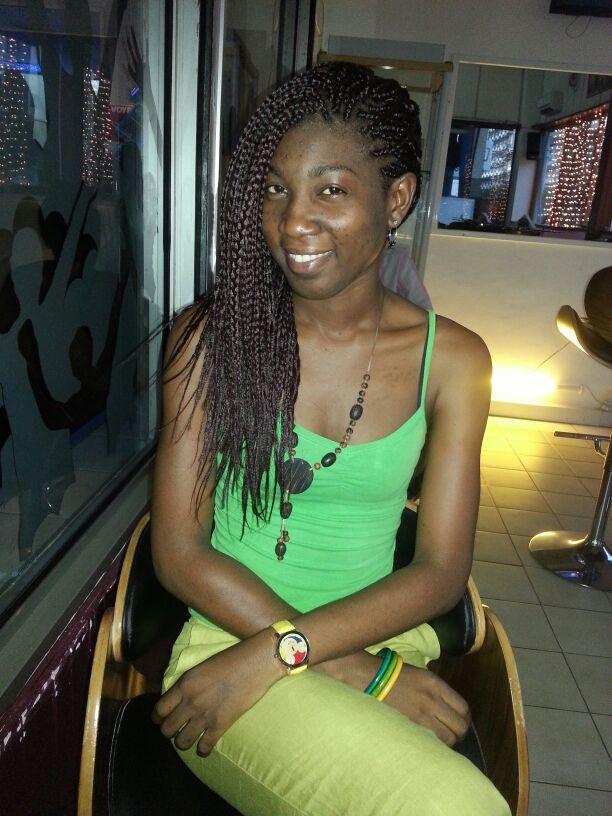
Based in Douala, Cameroon
For me fashion is an art. We all use it to give a piece of our minds so that at the first sight people can imagine who we are. It’s all about express and impress.
Nature defines African fashion trends. In every African creation you can feel that powerful inspiration which mixes all the fashion trends that exist in the world with African fabrics and materials.
My everyday look is all about ethno-chic and wax fabrics. I always add something that reminds my culture. Jewels made in wood, scarves, even my haircut. My favourite colors are black, brown and green. I like them because they are in every piece of nature. I prefer African brands because it makes me really proud to wear goods pieces made in Africa. But I don’t buy a piece because of the brand. I buy/wear every piece that I fit in. If something is pretty and original... Be sure that I'll own it.
Alina Liwo, 24, founder of ALITI FASHIONS, Cameroonian

Based in Illinois, U.S.
Fashion lets the world know who you are.
African fashion is as flexible and adaptable as people are. This is what makes African fashion so unique. African fashion leaves room for accepted creativity in social settings. It spans from traditional wear to ready-to-wear to avante garde. African fashion is not confined to trends and grows and changes every day. In a way, the often assumed inexperience that the Western culture has for Africa and its people allows us this flexibility, which we love to counter. African fashion knows no boundaries.
African fashion is just as developed as the Western fashion industry; it just does not receive as much exposure. This niche is full of thriving young and emerging designers, as well as those who are already established. One does not have to delve too deep to find everything you need that is African inspired. The African fashion industry is extremely developed.
My typical outfit would be the midi-length, high-waist pencil skirt. You can never go wrong with a high-waist pencil skirt that has the right fit and stretches all the way down past your knees.





